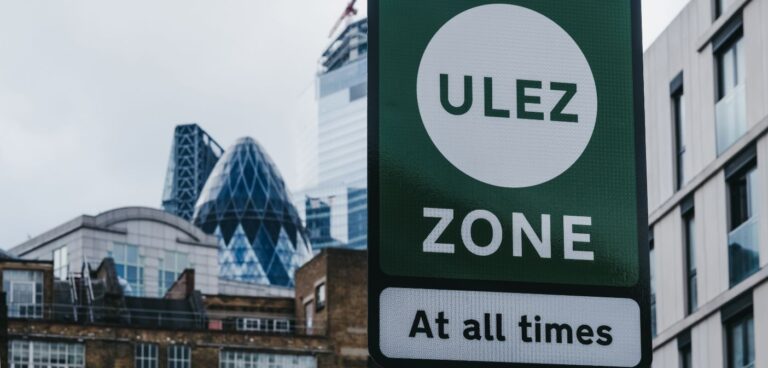Geolocation technology company TomTom has released the 11th edition of its annual Traffic Index, which highlights that while London’s congestion was responsible for an additional 2.2 megatonnes of CO2 during 2021 its ULEZ is working.
Road traffic in the capital last year resulted in 14.8 megatonnes (Mt) of CO2, of which 15% (2.2Mt) was a direct result of congestion.
Diesel vehicles accounted for the majority (60%) of London’s fleet traffic, contributing 10.6Mt of CO2 to the atmosphere each year, which is 72% of London’s total traffic emissions. While, carbon-intensive gasoline vehicles, which make up 36% of London’s fleet traffic, emit 4.1Mt of CO2 into the atmosphere per year.
London’s average CO2 emissions during a free-flow traffic day was 29,100t, while a congested traffic day caused this figure to increase to 48,300t.
“Our data shows that the environmental cost of London’s congestion is worryingly high. To put this into perspective, the UK would need to grow a forest almost the size of Northern Ireland in one year, to capture London’s 2021 traffic-related emissions from the atmosphere,” said Gunnar Berghauser, emissions lead at TomTom.
“Fortunately, however, 2021 also saw the acceleration of public programmes that are transforming the way we drive, including London’s recently introduced Ultra Low Emission Zone (ULEZ), which may be extended further to charge Londoners for every car trip they make by 2024.”
Using its emissions model, TomTom calculated the total CO2, PM and NOx emissions from the current vehicle mix within London’s ULEZ, with the total CO2, PM and NOx emissions from the same vehicle mix and kilometres driven outside the ULEZ.
“London’s ULEZ allows to reduce CO2 emissions by 5%, PM emissions by 40% and NOx emissions by 53.6% proving that sustainable policy decisions for more UK cities, coupled with EV uptake and support from local city planners, companies and drivers, will have a significant impact in reducing UK traffic emissions,” added Berghauser.
The report also details 2021 traffic trends seen in 404 cities in 58 countries. It found global congestion level in 2021 remains 10% lower than pre-Covid times, using 2019 as a base-line. TomTom report that in currently the world’s most congested city is Istanbul, Turkey, with congestion levels of 62%.





